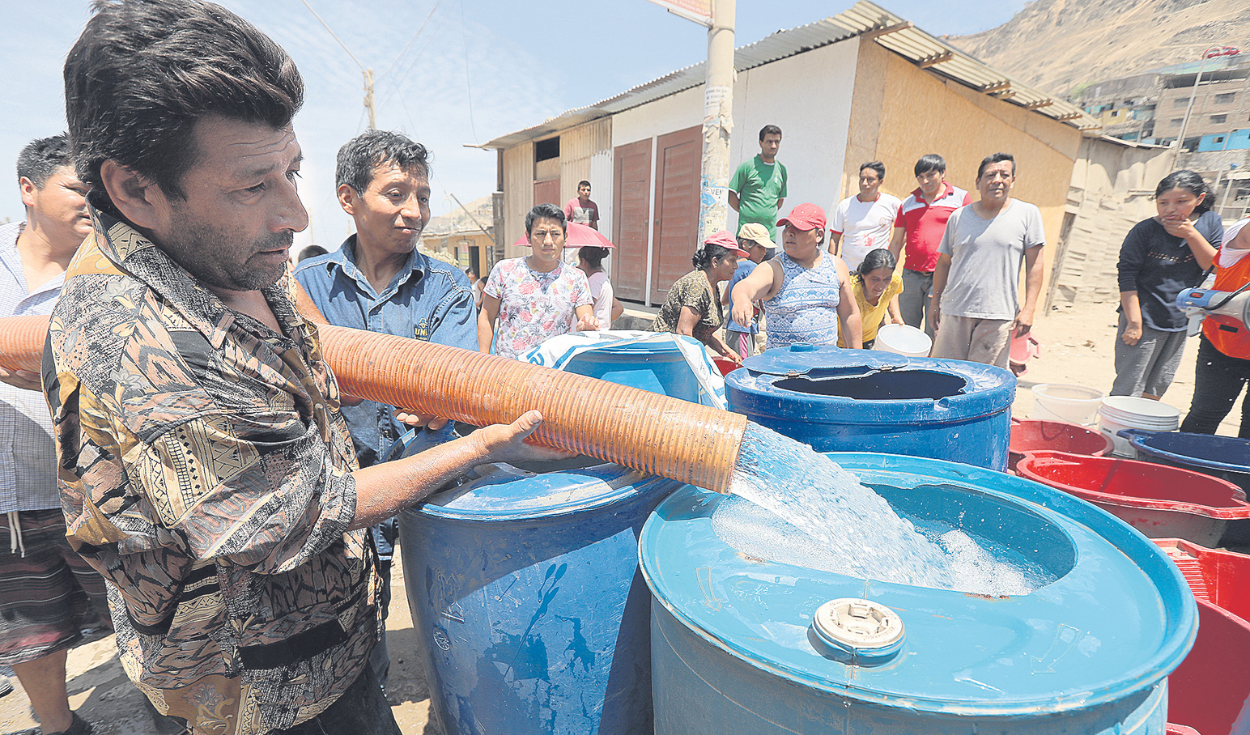
On September 23, Law 31880 was enacted, which delegates legislative powers to the Executive Branch for 90 days to strengthen the fight against citizen insecurity and disaster risk management in the face of the threat of El Niño.
Within the permits provided, in terms of infrastructure for basic services, the legislative decree 1280 —which approves the Framework Law for the Management and Provision of Sanitation Services— to improve the powers and functions of the national entities in charge of this sector.
The law establishes enhancing the service and institutional capacities of the entities that provide this service; although they also establish that The marketing of products will be promoted and encouraged generated by the sanitation activity and will allow its infrastructure to be used to provide this public service and regulate its market by establishing powers, functions and incentives so that more providing agents join.
“You cannot privatize a right”
Sigrid Bazán, from the Democratic Change-Together for Peru group, warned that the powers granted to the Executive give rise to privatization of services such as water.
“It seems incomprehensible to me that they seek to privatize services, which are rights, such as water. This request says that they believe companies intermediaries so that they can buy the water produced by the public company and then sell it. We are weakening what should be more than a service, a right for Peruvians,” the congresswoman argued during her speech in the plenary session.
MVCS: “We are not going to cover the gap”
Hania Pérez de Cuéllar, head of the Ministry of Housing, Construction and Sanitation (MVCS), acknowledged at the beginning of August that the privatization of Sedapal “is viable” because “we are definitely not going to cover the infrastructure gap with financing from public funds.” .
“The financing and infrastructure system to close water and sanitation gaps in Peru has failed (…). We have to find new ways to finance and execute works that allow us to close these gaps and work with the EPS (entities that provide sanitation services),” he noted in RPP.
It is worth adding that the MVCS installed a multi-sector commission for 120 days where the problems that Sedapal faces in providing water service in Lima and Callao will be identified.
Groups such as the National Federation of Drinking Water and Sewage Workers of Peru (Fentap) expressed their rejection of the inclusion of private companies in infrastructure and production of drinking water; and, on the contrary, they demand that Sedapal be strengthened, which, despite regulated restrictions, continued to outsource its workers in essential activities and failed to intervene in cases of corruption in some EPS.
Reactions
Hania Pérez de Cuéllar, Minister of Housing, Construction and Sanitation
“Of course it is viable (to privatize Sedapal). Definitely, we are not going to cover the infrastructure gap with financing from public funds. The system has failed”.
Sigrid Bazán, congresswoman
“This order says that intermediary companies be created to buy the water produced by the public company and then sell it. “We are weakening what should be a right.”
Figures
- 10% of the Peruvian population does not have drinking water.
- 50 companies nationwide provide drinking water and sanitation services.
- On average, a family that is not connected to the public drinking water network pays S/80.
Source: Larepublica
Alia is a professional author and journalist, working at 247 news agency. She writes on various topics from economy news to general interest pieces, providing readers with relevant and informative content. With years of experience, she brings a unique perspective and in-depth analysis to her work.












